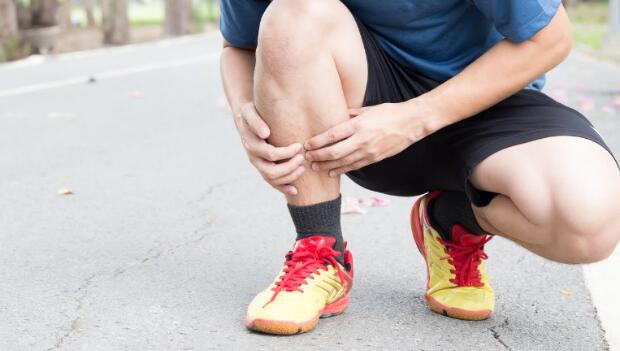
Whether you are a seasoned marathoner ramping up for your next race or just lacing up your running shoes for the first time, pain in the front of your lower legs, commonly known as "shin splints" can really slow you down.
Running Events Near You
"Shin splints" the pain you feel over the front of the lower leg with activity, more appropriately known as Medial Tibial Stress Syndrome (MTSS), is almost a rite of passage for recreational runners and accounts for 60 percent of all over use injuries.
The pain creeps up on you about three weeks into your period of increased training and feels like an ache that intensifies with pounding. It can progress to sharp pain with each step. When you touch the front of your shin bone (tibia) and the muscle beside it (anterior tibialis) you will feel reproducibly tender. Most of the pain will be localized over the lower one-third of your leg and will increase with resisted plantar flexion (like pushing against the gas pedal).
Why You Get Shin Splints
There are three reasons most of us develop MTSS at some point in our athletic careers. I call them the "Shin Splint Terrible Toos":
1. Too much medial foot pressure (ie: poor biomechanics):
with each heel strike onto the central part of your heel, too much pressure is transferred towards your arch and medial column of your forefoot. If you are naturally "knock kneed" this is even worse. All this leads to altered internal rotation of the tibia and overwork/pressure on the front of your leg and therefore pain.
2. Too little lower leg strength (ie: you're weak)
Runners pay too little attention to the strength of the muscles in their lower legs! A weak posterior tibialis (the muscle responsible for supporting the medial column of your foot) leads to early fatigue and over pronation. Anterior tibialis and gastroc weakness also contribute to early fatigue and worse mechanics. Beginning runners with low initial fitness and strength levels are 3.6 times more likely to develop shin splints.
3. Too much activity, too soon, with too much intensity
This is true for seasoned runners ramping up as well as newbies. Shin splints show up during the first three to10 weeks of a new training schedule.
How to Treat Shin Splints
Previous mistreated shin splints predicts future mistreated shin splints, so don't ignore it.
1. Cross-train: runners who only run without a plan for total body conditioning are set-ups for injury. You will be a better runner if you cross train on a spin bike or rowing machine and with total body cross training circuits such as my THRIVE Powerplay series for runners.
2. Get a foot pressure evaluation or running evaluation to make sure your are not overloading your foot's medial side. You may need an orthotic to correct your mechanics.
3. Strengthen your lower leg in 4 directions using bands: dorsiflexion, plantarflexion, eversion, inversion. Do two sets of 10 in each direction with both feet daily during the initial recovery period and then several times a week as maintenance. (see pictures and video that accompany this blog)
4. ICE massage: Freeze Dixie cups of ice, peel back the paper and massage the front of our legs with the ice for 20 minutes several times a day. This not only decreases the inflammation but stimulates blood flow to repair the injury.
5. NSAIDS: Non-steroidal anti-inflammatories are not for pain but actually act to decrease the explosion of inflammatory factors at your injury site...as a consequence the pain decreases. It is not a pain masker...it is actually treating the problem.
6. Return to sport: When your pain is gone with rest, there is no pain with pressing on the front of your leg and does it not return with light activity, begin walk/running again on soft surfaces. Gradually increase your activity.
7. Go to a sports doc: If your pain is not responding to these steps in two weeks, your point tenderness is increasing, if you have known osteopenia, or you just need to know you are not hurting yourself
 Sign up for your next race.
Sign up for your next race.

